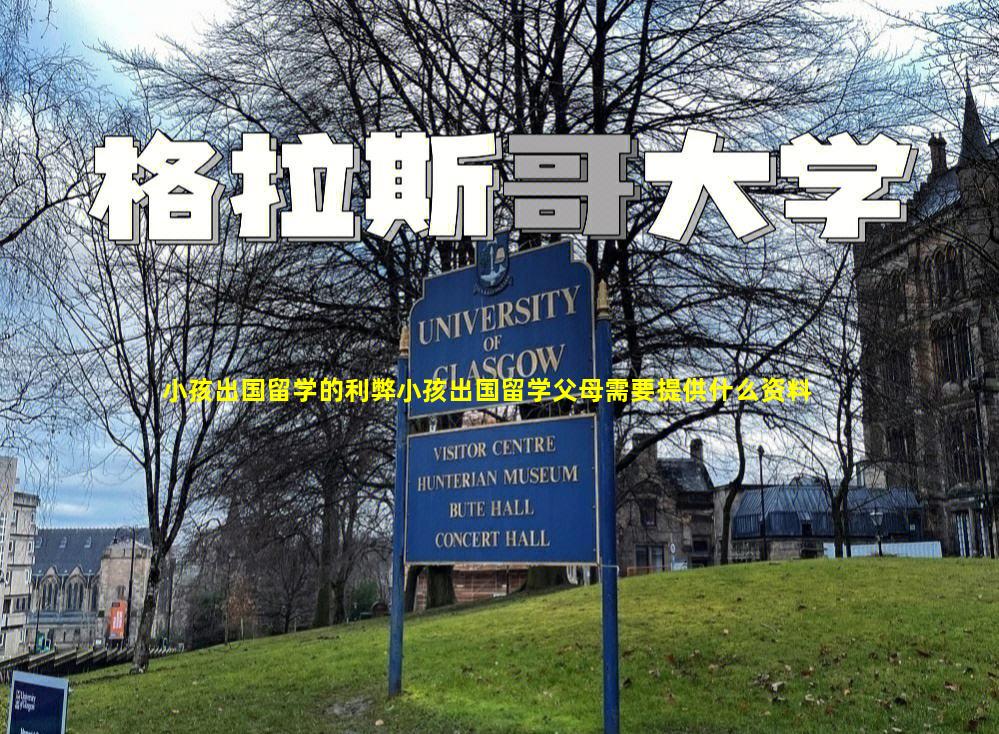 锦泰留学网
锦泰留学网小孩出国留学的利弊 小孩出国留学父母需要提供什么资料
 匿名用户
匿名用户
小孩出国留学的利益:
1. 语言能力提升:小孩在国外学习可以接触到本地的语言环境,提高语言听说读写的能力。
2. 教育质量高:一些国家的教育体制和资源更为先进,小孩可以受益于高质量的教育资源和师资。
3. 开拓视野:出国留学可以让小孩认识不同的文化,了解多元化的价值观,加强跨文化交流能力。
4. 增加人际关系:小孩可以与来自不同国家和地区的同学交流,建立国际友谊。
5. 增加竞争力:有一个国外的学历经历可以增加小孩就业时的竞争力。
小孩出国留学的劣势:
1. 孤独和适应困难:小孩在异国他乡可能会感到孤单和不适应,需要一定时间来适应新的环境和文化。
2. 文化冲突:小孩可能会遇到与自己家庭和传统文化的冲突,可能会导致身份认同和价值观的困惑。
3. 家庭分离:小孩出国留学意味着与家人分离,可能会影响与家人的亲密关系和沟通。
4. 经济压力:出国留学需要一定的经济投入,可能会给家庭带来一定的经济压力。
5. 影响成长和社交经历:出国留学可能会让小孩错过在本地生活和成长的机会,可能会对他们的社交经历造成影响。
小孩出国留学父母需要提供以下资料:
1. 孩子的护照和照片:父母需要为孩子申请护照,并提供更新的照片。
2. 签证申请表和费用:根据目的地国家的要求,父母需要填写签证申请表并缴纳相应的签证费用。
3. 出生证明和身份证明:提供孩子的出生证明和身份证明文件,如户口本、身份证等。
4. 学校文件:包括入学通知书、学校的接受函、学费缴纳证明等。
5. 经济支持证明:提供父母的收入证明,如工资单、银行对账单等,以证明他们有足够的经济能力支持孩子的留学生活。
6. 授权委托书:如果父母无法陪同孩子出国,他们需要提供授权委托书,授权其他人代为照料和监护孩子。
7. 健康和医疗文件:包括健康证明、疫苗接种记录以及医疗保险文件。
父母还需要了解目的国对于出境留学未成年人的相关要求和规定,并根据要求提供相应的资料和文件。
A: Hey, have you ever thought about studying abroad?
B: Yeah, it's definitely something I've considered. There are both pros and cons to studying abroad, though.
A: Of course, let's discuss the advantages first. One major benefit is the opportunity to experience a new culture and immerse oneself in a foreign environment.
B: Absolutely, being exposed to different customs and traditions can be a transformative experience. It can broaden our perspective and help us become more open-minded and adaptable.
A: And don't forget about the chance to make international friends. You can meet people from all around the world and build lifelong connections.
B: That's true. It's an excellent way to develop a global network which could be beneficial for future job opportunities.

A: Not to mention the language skills. Studying abroad provides an opportunity to improve our foreign language proficiency, especially if we choose a non-English speaking country.
B: Right, being surrounded by native speakers can greatly enhance our language abilities. It's a more immersive and natural way to learn compared to just studying in a classroom.
A: But let's not forget, there are some challenges as well. One downside is the cost. Studying abroad can be expensive, with tuition fees, accommodation, and living expenses to consider.
B: That's true. It can put a strain on our financial resources, and not everyone can afford it. Scholarships and financial aid options are available, but they are competitive and not easily accessible for everyone.
A: Also, homesickness can be tough to deal with. Being away from family and friends for an extended period can make some people feel isolated and lonely.
B: Absolutely, being in a new environment can be overwhelming at times. Adjusting to a different culture, food, and lifestyle may take time and can be challenging.
A: Another potential drawback is the uncertainty of job prospects post-graduation. Sometimes, employers may value local qualifications more than international ones.
B: That's a valid concern. It's essential to research and understand the job market in our intended field of study and the country we plan to study in.
A: Overall, studying abroad can be a rewarding experience but requires careful planning and consideration of both the advantages and disadvantages.
B: Definitely, it's important to weigh the benefits against the challenges and make an informed decision based on individual circumstances and goals.
送孩子出国留学无疑有其利与弊。下面是一些关于这一话题的讨论点:
利:
1. 世界一流教育资源:出国留学可以让孩子接触到顶尖的教育资源,获得更优质的学位和教育体验。

2. 探索多元文化:在国外学习可以让孩子了解和融入不同的文化和社会背景,培养跨文化交流能力和全球视野。
3. 增强语言能力:在国外学习可以提升孩子的语言能力,特别是英语能力,这对以后的学术和职业发展大有裨益。
4. 培养独立性和自信心:独自在国外生活和学习可以锻炼孩子的独立性和自理能力,培养他们的自信心和适应能力。
弊:
1. 文化冲击和适应困难:在国外留学可能会遇到文化冲击和适应困难,孩子需要时间来适应新的环境、人际关系和学习方式。
2. 高昂的费用负担:出国留学常常需要支付高昂的学费和生活费,这对家庭经济可能会造成重大压力。
3. 离家和孤独感:孩子在国外留学会与家庭和亲朋好友分隔很远,可能会面临孤独感和思乡之情,需要克服这些情绪问题。
4. 学业压力和竞争激烈:国外的学业压力可能会比国内更大,竞争也更加激烈,对孩子的心理和身体健康可能会带来一定影响。
每个家庭的情况都不同,对于是否送孩子出国留学应该根据个人情况综合考虑。
相关问题
 匿名用户 2025-07-07
匿名用户 2025-07-07 匿名用户 2025-07-07
匿名用户 2025-07-07 匿名用户 2025-07-07
匿名用户 2025-07-07 匿名用户 2025-07-07
匿名用户 2025-07-07 匿名用户 2025-07-06
匿名用户 2025-07-06 匿名用户 2025-07-05
匿名用户 2025-07-05 匿名用户 2025-07-04
匿名用户 2025-07-04 匿名用户 2025-07-04
匿名用户 2025-07-04 匿名用户 2025-07-04
匿名用户 2025-07-04 匿名用户 2025-07-04
匿名用户 2025-07-04